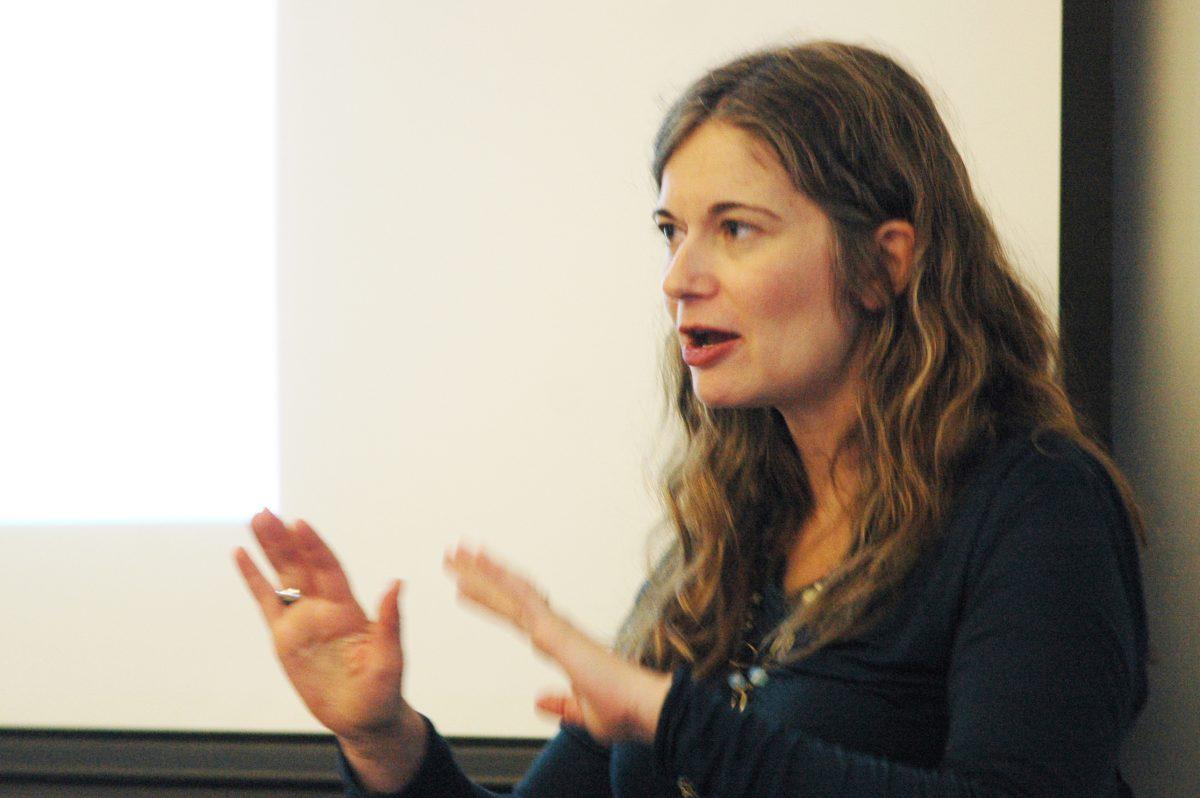The 1990s and subsequent international criminal trials may not seem like they apply to the everyday U.S. citizen, but that’s not the case according to a visiting N.C. State professor.
Jelena Subotic, the 2014 Visiting Young Scholar for the School of Public and International Affairs, gave a lecture in Park Shops Thursday about the International Criminal Tribunal for the former Yugoslavia, which is a body of the United Nations that addresses genocide, ethnic cleansing and other crimes that occurred during the Yugoslav wars.
According to Subotic, who experienced the war firsthand, several military leaders on all sides of the conflict were convicted by the ICTY at the Hague in the Netherlands, but were later acquitted because there wasn’t evidence that they directly ordered the acts of torture, ethnic cleansing and crimes against humanity of which they were originally convicted.
“This isn’t just about a lack of justice, this is about the hardening of the narrative of what these wars were about,” Subotic said. “Pardoning these leaders because we don’t have evidence that they directly ordered these crimes is a strange standard and not a standard that had been applied before. This is controversial from a legal perspective as well as a political perspective.”
These acquittals—some of which occurred as recently as last year—have created a “huge disillusionment” in the human rights community, especially among the victim’s families.
Because these crimes happened 15 or more years ago on foreign soil, Subotic asked the audience throughout the lecture, “Why should we care?”
According to Subotic, the still-ongoing ICTY trials have major consequences internationally.
One of these consequences is the precedents being set by international political bodies.
“The international policy makers—the U.S., the European Union and the United Nations—have made these legal responses to human rights abuses by the ICTY a proxy for respecting human rights,” Subotic said. “For example, the EU has directly tied Serbian and Croatian cooperation as ways to measure for membership.”
According to Subotic, the countries involved in the Yugoslav wars simply had to arrest a few military leaders and extradite them to be tried at the Hague.
“This has set up the way in which we regulate human rights and justice internationally,” Subotic said. “This opens up a lot of space for elites to abuse the system. ‘Oh you want us to extradite these five people and we’ll get the benefits of EU membership? Okay, that’s the end of it.’
Sending individuals to the Hague has closed this discussion instead of opening it up.”
The ICTY trials have also created a hostile environment in the Balkan region because no Croat was convicted of any war crimes against the other ethnic groups involved, which has led to Serbians distrusting international legal tribunals.
“This current crisis has led to a very unstable environment for larger transitional projects in the western Balkans and viscious political fallout and hardening nationalism in those countries,” Subotic said.
Subotic said the acquittals also created the idea that Croatians did nothing wrong in the Yugoslav war. In fact, Ante Gotovina, a retired Croatian general convicted of crimes against humanity including ethnic cleansing charges, was greeted in his home country as a hero upon his acquittal.
“This narrative that certain people have done nothing and that they didn’t commit any crimes will perpetuate in the media and in education in these countries,” Subotic said.
Subotic said this mistrust has even led to Serbians claiming that Croatian leaders in the war were acquitted so that the U.S. and Israel could later use this precedent to acquit their own leaders of future war crimes.
Another problem with the trials, according to Subotic, is the ICTY was expected to bring peace to the region and reconcile the different ethnic groups instead of simply trying leaders accused of war crimes.
“There is a mismatch of the scope of what they should do, which is to prosecute individuals,” Subotic said. “But the main thing is that they’ve expanded to try and foster peace and reconciliation in the region. The entire process of post-conflict justice has been put on the shoulders of the court. When things went downhill, the court was to blame.”
In reality, scholars are finding very little evidence that courts can provide liberal order and peace building, Subotic said.








